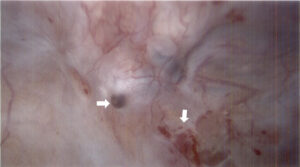Blood Test Offers Better Prediction of Preeclampsia Risk

Researchers have shown that a novel molecular signature from a single blood sample can identify women at risk of preeclampsia months before presentation. They also report that molecular signatures accurately track gestational age, independently of clinical factors, and could advance the study of other complications.
Read More...







